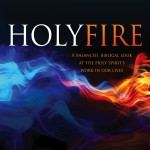Theology and worship
Having had one foot in the reformed camp and the other in the Charismatic-Pentecostal camp, I have been increasingly alarmed at the trend in some of the worship among the latter camp. The early Methodists got their theology mostly from their hymns. This made them theologically-minded – a trait you and I must never lose. Whose hymns did the early Methodists sing? They sang those written by such people as Isaac Watts (1674-1748), Charles Wesley (1707-1788), William Cowper and John Newton (1725-1807). Read them. Sing them. Have you had a look lately at the words of hymns like “And can it be that I should gain and interest in my Savior’s blood?”, “When I survey the wondrous cross on which the Prince of glory died”, “God moves in a mysterious way His wonders to perform”, “How sweet the Name of Jesus sounds”, “O for a heart to praise my God, a heart from sin set free”? I would plead for the present generation of all Christians to sing the new as well as the old. Jesus spoke a parable about “the owner of a house who brings out of his storeroom new treasures as well as old” (Matt.13:52), a truth that could readily apply to new and old hymns.
What worries me most about some contemporary worship is its lack of good theology. Some seem to have almost no theology at all! This is not good. I fear that we are producing a generation of people who are vulnerable to heretical movements partly because of a lack of good grounding in the truth. That said, I thank God for hymns like Chris Bowater’s “Jesus shall take the highest honour”, Graham Kendrick’s “Restore O Lord the honour of your Name”, “Knowing you, Jesus”, “Such love”, Stuart Townend’s “How deep the Father’s love for us”, “In Christ alone”, Matt Redman’s “Blessed be your Name”, “Ten thousand reasons”, Stephen Fry’s “Oh the glory of your presence”, Darlene Zschech’s “Shout to the Lord” and others.
But there are pitfalls in conservative Evangelicalism too. One teaching that is common in reformed theology is called “cessationism”. The idea is that the miraculous “ceased” sometime after the last apostle died or when the canon of Scripture was complete. Cessationism is not a fad. It has been around for a long time. Those who uphold this are not heretics. They are good people. But cessationism quenches the Holy Spirit as much as the previously mentioned teachings that displease him. You will not likely convince a cessationist to believe that the living God heals supernaturally today. A man convinced against his will is of the same opinion still! I just don’t want some of these people to convince you! So do not let those who hold to their views that God will not manifest his power today deter you from seeing the God of glory show himself in our generation. That is why I wrote Holy Fire.
My own theological stable is reformed. But I came into it not by reading reformed theology. My purpose in writing this book however is not to change your theology but make you hungry for the Holy Spirit. If you walk in the Spirit, know your Bible and spend sufficient time alone with God, your theology will take care of itself. My greatest mentor was Dr. Martyn Lloyd-Jones. Through this book I want to make him better known and a blessing to you as much as he was to me. The greatest thing he ever said to me was this: “The worst thing that can happen to a man is to succeed before he is ready”. This statement is what helped me “keep my head” when God did not manifest his power in my own ministry as quickly as I hoped. But I never gave up. I don’t want you to give up!
RT
We are selling Holy Fire at the discount price of $11.99 this month!

